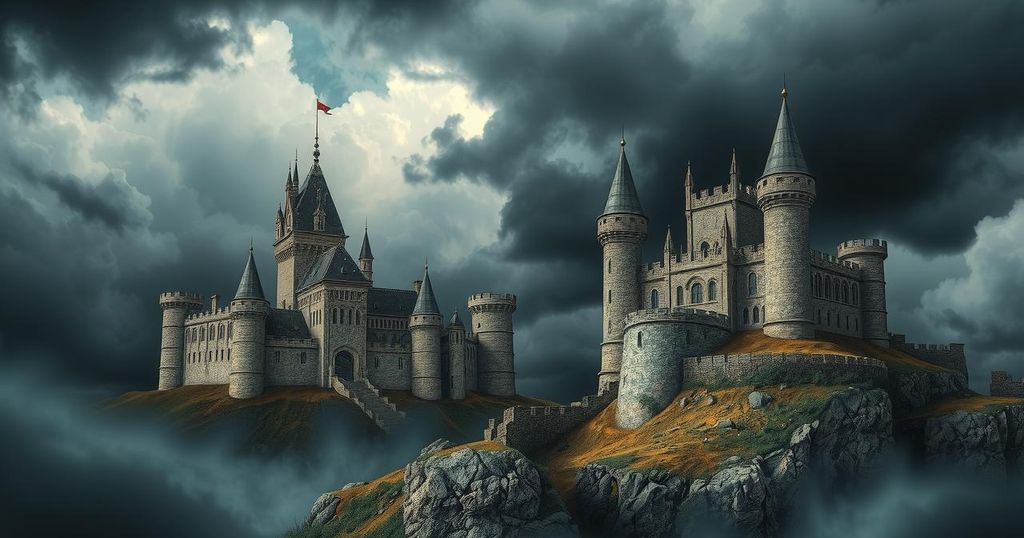The political rivalry between the Marcos and Duterte families has intensified, with the arrest of former President Rodrigo Duterte by the ICC for crimes during his drug war. This event marks a pivotal moment in Philippine politics, revealing the dissolution of political alliances and mounting tensions over corruption allegations against Sara Duterte, shaping the future of governance in the country.
The ongoing power struggle between the Marcos and Duterte families in the Philippines is escalating, particularly as tensions rise over allegations of corruption against Sara Duterte, daughter of former President Rodrigo Duterte. Her recent admissions of having solicited a hit man for President Ferdinand “Bongbong” Marcos Jr. and key political figures reflects the intense rivalry between these two powerful dynasties that have shaped Philippine politics for decades.
The arrest of former President Duterte on charges related to extrajudicial killings during his contentious war on drugs has introduced a pivotal chapter in this feud. Prosecutors at the International Criminal Court assert that Duterte is liable for the deaths of thousands during his presidency, which lasted from 2016 to 2022. Following his arrest, Duterte was swiftly transferred to The Hague.
Despite assertions from Duterte that the violent drug campaign was justified, such measures have garnered both significant domestic support and international condemnation. His arrest signifies the ICC’s determination to pursue justice, amid significant challenges in securing compliance with its warrants. Remarkably, the arrest was facilitated by the fallout of the alliance between the Marcos and Duterte families, leading to unexpected political developments.
As tensions escalated, Marcos Jr. denied any political motivations behind his predecessor’s arrest, claiming that actions taken were in accordance with international law enforcement procedures. This divergence from former collaborations marks a significant turning point in the relationship between these families, and ultimately the governance of a key U.S. ally in Asia.
The historical ties between the two families substantially complicate the current situation, with connections dating back to the dictatorship era. However, under Marcos Jr., the Philippines has seen a shift back toward the U.S. amidst concerns over China’s increasing influence in the region. Meanwhile, pressures within their coalition have shown cracks, notably with Sara’s exclusion from the defense ministry and other political maneuvers fostering public disputes between the families.
Sara Duterte’s recent comments and accusations further illuminate the hostility brewing as she faces political turmoil over alleged financial misconduct. This discord has heightened with a Senate impeachment vote against her, suggesting that the deepening schisms within Filipino political leadership could have wider implications as voters prepare for upcoming elections.
The dynastic conflict persists as both families face distinct political futures, with Davao’s former president potentially contesting local elections, while Sara Duterte prepares to support her father as he combats serious charges. As this feud unfolds, it raises critical questions regarding governance, accountability, and political power in the Philippines.
The escalating rivalry between the Marcos and Duterte families in the Philippines has reached a critical juncture following the arrest of former President Rodrigo Duterte by the International Criminal Court. Allegations of corruption and extrajudicial violence have drawn significant scrutiny, revealing the complexities of political alliances that historically defined Philippine politics. With current tensions threatening to undermine both family legacies, the implications for governance and democracy in the Philippines remain profound, as citizens approach critical elections amid a backdrop of familial conflict.
Original Source: www.hindustantimes.com




